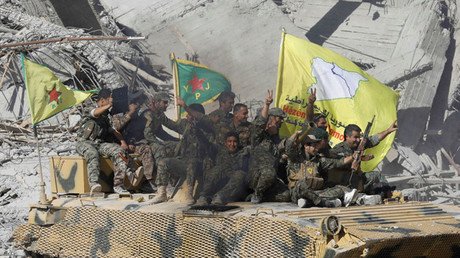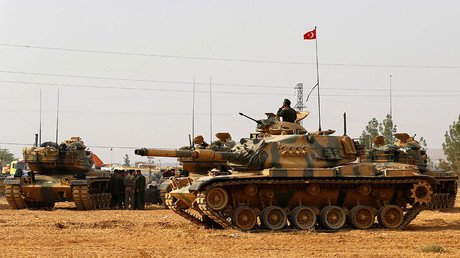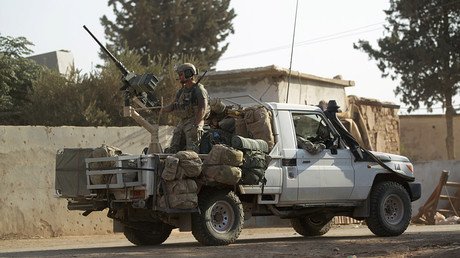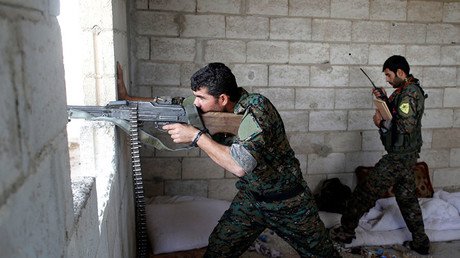US backtracks on ‘Kurdish border force’, Turkey cites record of broken promises
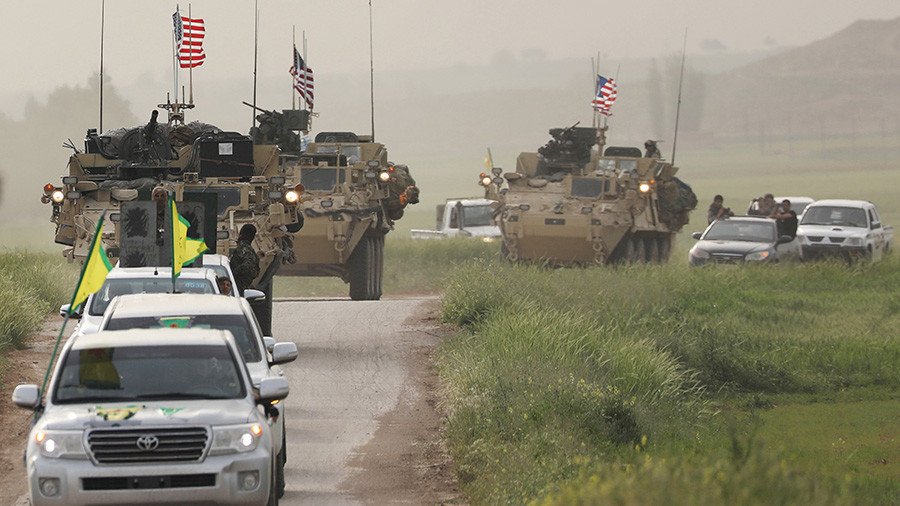
Turkey said it was unimpressed by US attempts to downplay a planned 30,000-strong, predominantly Kurdish border force in northern Syria. The Turkish foreign minister said the US had lied about supporting the Kurds in the past.
Washington must take concrete steps to address Ankara’s concerns about Kurdish militias in Syria, Mevlut Cavusoglu told CNN Turk on Thursday, after top US officials tried to repair damage done by the training plan. He reiterated that Ankara could attack Kurdish militias in Syria, and said it would coordinate a possible operation with Russia and Iran to make sure their observers in the area are not harmed.
Earlier, Turkish Prime Minister Binali Yildirim said it was up to Washington to alter its Syrian policy and re-engage with Turkey. “The practices of our NATO ally [the] US in Syria are unfortunately wrong and against the spirit of alliance. The US should end confusion over the region's future, and change its attitude towards peace and restoring relations with Turkey," he said, as cited by Anadolu news agency.
Washington’s announcement last week that it would help its ally, the Syrian Democratic Forces (SDF), to set up a force of some 30,000 fighters along the border with Turkey angered Ankara. The SDF primarily consists of the Kurdish militia YPG, which is considered by the Turkish government to be an extension of the militant movement Kurdistan Workers' Party (PKK), which has been fighting a guerrilla war for decades. Following outcry from Turkey, the US is apparently rowing back on the plan.
“The US continues to train local security forces in Syria. The training is designed to enhance security for displaced persons returning to their devastated communities,” the Pentagon said in a statement on Wednesday.
“It is also essential so that ISIS cannot re-emerge in liberated and ungoverned areas. This is not a new ‘army’ or conventional ‘border guard’ force,” it added in relation to the SDF force, which would be based in the north-western Syrian area of Afrin.
US Secretary of State Rex Tillerson also downplayed the story after meeting his Turkish counterpart Mevlut Cavusoglu in Canada. “That entire situation has been misportrayed, misdescribed. Some people misspoke. We are not creating a border security force at all,” he said on Tuesday. “I think it’s unfortunate that comments made by some left that impression. That is not what we’re doing.”
News of the training program was initially reported by the Defense Post and was later confirmed by US military officials. The reported plan was to redeploy 15,000 members of the SDF to “a new mission in the Border Security Force as their actions against ISIS draw to a close,” and gradually double their number by training additional troops, with a group of 230 recruits already in training.
The plan sparked outrage in Turkey, which called the planned force a “terror army” and said it would not hesitate to attack it. In August 2016, Ankara launched a military operation in Syria, targeting both Kurdish militias and armed groups loyal to the terrorist group Islamic State (IS, formerly ISIS). The Operation Euphrates Shield lasted for over seven months.
The continued US support of Kurdish militias in Syria and Iraq has been a major factor behind the deterioration of relations between Ankara and Washington. The Americans helped the SDF to lay siege on the Syrian city of Raqqa and take control of it from IS last year, supporting the offensive with artillery shelling and airstrikes, as well as propping up the militias with special operation groups and military instructors.
The US plans to keep troops in Syria for an undetermined period of time, claiming it is necessary in order to protect Washington’s interests in the region. The deployment violates Syrian sovereignty, as the US has neither an invitation from Damascus nor a mandate from the UN Security Council to do it.
Like this story? Share it with a friend!
